第1章 1(1)
Since earliest childhood I have been strangely fascinated by the mystery surrounding the history of the last days of twentieth century Europe. My interest is keenest, perhaps, not so much in relation to known facts as to speculation upon the unknowable of the two centuries that have rolled by since human intercourse between the Western and Eastern Hemispheres ceased--the mystery of Europe's state following the termination of the Great War--provided, of course, that the war had been terminated.
From out of the meagerness of our censored histories we learned that for fifteen years after the cessation of diplomatic relations between the United States of North America and the belligerent nations of the Old World, news of more or less doubtful authenticity filtered, from time to time, into the Western Hemisphere from the Eastern.
Then came the fruition of that historic propaganda which is best described by its own slogan: "The East for the East--the West for the West," and all further intercourse was stopped by statute.
Even prior to this, transoceanic commerce had practically ceased, owing to the perils and hazards of the mine-strewn waters of both the Atlantic and Pacific Oceans. Just when submarine activities ended we do not know but the last vessel of this type sighted by a Pan-American merchantman was the huge Q 138, which discharged twenty-nine torpedoes at a Brazilian tank steamer off the Bermudas in the fall of 1972. A heavy sea and the excellent seamanship of the master of the Brazilian permitted the Pan-American to escape and report this last of a long series of outrages upon our commerce. God alone knows how many hundreds of our ancient ships fell prey to the roving steel sharks of blood-frenzied Europe. Countless were the vessels and men that passed over our eastern and western horizons never to return; but whether they met their fates before the belching tubes of submarines or among the aimlessly drifting mine fields, no man lived to tell.
And then came the great Pan-American Federation which linked the Western Hemisphere from pole to pole under a single flag, which joined the navies of the New World into the mightiest fighting force that ever sailed the seven seas--the greatest argument for peace the world had ever known.
Since that day peace had reigned from the western shores of the Azores to the western shores of the Hawaiian Islands, nor has any man of either hemisphere dared cross 30dW. or 175dW. From 30d to 175d is ours--from 30d to 175d is peace, prosperity and happiness.
Beyond was the great unknown. Even the geographies of my boyhood showed nothing beyond. We were taught of nothing beyond. Speculation was discouraged. For two hundred years the Eastern Hemisphere had been wiped from the maps and histories of Pan-America. Its mention in fiction, even, was forbidden.
Our ships of peace patrol thirty and one hundred seventy-five. What ships from beyond they have warned only the secret archives of government show; but, a naval officer myself, I have gathered from the traditions of the service that it has been fully two hundred years since smoke or sail has been sighted east of 30d or west of 175d. The fate of the relinquished provinces which lay beyond the dead lines we could only speculate upon. That they were taken by the military power, which rose so suddenly in China after the fall of the republic, and which wrested Manchuria and Korea from Russia and Japan, and also absorbed the Philippines, is quite within the range of possibility.
It was the commander of a Chinese man-of-war who received a copy of the edict of 1972 from the hand of my illustrious ancestor, Admiral Turck, on one hundred seventy-five, two hundred and six years ago, and from the yellowed pages of the admiral's diary I learned that the fate of the Philippines was even then presaged by these Chinese naval officers.
Yes, for over two hundred years no man crossed 30d to 175d and lived to tell his story--not until chance drew me across and back again, and public opinion, revolting at last against the drastic regulations of our long-dead forbears, demanded that my story be given to the world, and that the narrow interdict which commanded peace, prosperity, and happiness to halt at 30d and 175d be removed forever.
I am glad that it was given to me to be an instrument in the hands of Providence for the uplifting of benighted Europe, and the amelioration of the suffering, degradation, and abysmal ignorance in which I found her.
I shall not live to see the complete regeneration of the savage hordes of the Eastern Hemisphere--that is a work which will require many generations, perhaps ages, so complete has been their reversion to savagery; but I know that the work has been started, and I am proud of the share in it which my generous countrymen have placed in my hands.
The government already possesses a complete official report of my adventures beyond thirty. In the narrative I purpose telling my story in a less formal, and I hope, a more entertaining, style; though, being only a naval officer and without claim to the slightest literary ability, I shall most certainly fall far short of the possibilities which are inherent in my subject. That I have passed through the most wondrous adventures that have befallen a civilized man during the past two centuries encourages me in the belief that, however ill the telling, the facts themselves will command your interest to the final page.
Beyond thirty! Romance, adventure, strange peoples, fearsome beasts--all the excitement and scurry of the lives of the twentieth century ancients that have been denied us in these dull days of peace and prosaic prosperity--all, all lay beyond thirty, the invisible barrier between the stupid, commercial present and the carefree, barbarous past.